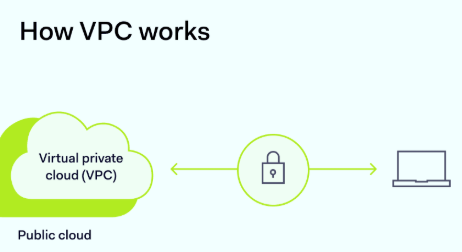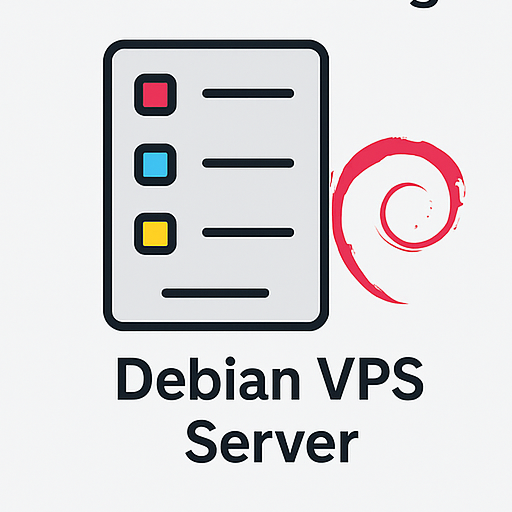
A Virtual Private Cloud (VPC) is a secure and isolated public cloud segment that allows users to run resources like servers, bases de datos, and applications with much greater control over their network environment. It merges the freedom of cloud computing with the best kind of security, enabling businesses to outline their private couple settings, including address ranges, subnets, and firewalls. VPC is a critical service in cloud computing because it provides a trade-off between scalability and security; organizations can easily scale resources up and down while protecting sensitive data in transit through encryption, access controls, and private connections.
What is a Virtual Private Cloud?
The definition of VPC is that it is an isolated logical network secured within the public cloud, thus allowing businesses to run workloads in this controlled environment. The VPC is much unlike a private cloud that runs on a dedicated physical infrastructure; a virtual private cloud runs on shared cloud provider infrastructure with tight access control, private networking, and resource isolation. Hence, it is a win-win situation—the public cloud scalability and cost structure mixed with the security and control of a private setup.

Hosting de Windows VPS
Remote Access & Full Admin
A VPC allows the user to set up his configurations regarding the network, IP address ranges, routing tables, and security policies, thus ensuring that classified data and applications remain secure. Enterprises with hybrid cloud strategies typically adopt VPC since it connects to their on-premises data centers through VPN or dedicated connections. The segmenting of networks, combined with firewalls and encryption measures of the VPC, helps organizations comply with security standards while enjoying the agility of the cloud.
Key Components of a VPC:
- Subnets: Divide the VPC into smaller network segments for better organization and security.
- Internet Gateway: Allows communication between the VPC and the public internet.
- Virtual Private Gateway: Enables secure connections via VPN between the VPC and an on-premises data center.
- Security Groups: Act as virtual firewalls, controlling inbound and outbound traffic for cloud instances.
- Network Access Control Lists (NACLs): Provide an additional layer of security by controlling traffic at the subnet level.
- Route Tables: Define how network traffic is directed within the VPC.
- Elastic IPs: Static, public IP addresses that can be assigned to cloud resources for consistent access.
How Does a Virtual Private Cloud Work?
A Virtual Private Cloud (VPC) operates by creating a secure, isolated network within the public cloud, allowing businesses to manage resources with customized security and networking controls. Network segmentation is achieved using subnets, which further divide the VPC into smaller sections where security groups and network access control lists (NACLs) can regulate the traffic flow.
Companies can connect their VPCs to the on-premises infrastructure via a VPN or Direct Connect, ensuring secure and private communication. Such a setup allows organizations to maintain resource isolation to some extent and improve security while reaping the advantages of cloud elasticity.
In VPC configuration, businesses set IP address ranges, subnets, and security policies to govern the access and flow of traffic. They attach internet gateways for outbound traffic and apply private gateways for inbound traffic. VPCs find applications mainly in hosting application services, database management, and security for mission-sensitive workloads.
Benefits of Using a Virtual Private Cloud (VPC)
- Security – Enhanced Data Protection: A VPC provides a logically isolated environment, reducing the risk of unauthorized access. Features like security groups, NACLs, and encrypted connections ensure that sensitive data, aplicaciones, and workloads remain protected from external threats.
- Scalability – Flexible Resource Allocation: With a VPC, businesses can scale up or down based on their needs while maintaining a secure, private network.
- Cost-Efficiency – Lower Infrastructure Expenses: VPCs offer the benefits of private networking without the high costs of maintaining dedicated physical infrastructure.
- Performance – Improved Network Efficiency: VPCs allow users to optimize traffic flow within their virtual network by configuring subnets, routing tables, and gateways.
Challenges and Considerations
- Complex Configuration: Setting up a VPC requires a deep understanding of networking, seguridad, and resource allocation.
- Operational Overhead: Maintaining a VPC may require constant monitoring, actualizaciones, and compliance management.
- Cost Management: Advanced features like dedicated gateways and additional security measures can increase costs.
- Compliance: Organizations must ensure their VPC setup adheres to regulations such as HIPAA, GDPR, or PCI DSS.
- Integration Issues: Integrating VPCs with on-premises systems or multiple cloud platforms may pose compatibility challenges.
VPC vs. Other Cloud Models
- VPC vs. Private Cloud:
- VPC uses shared cloud infrastructure; Private Cloud uses dedicated hardware.
- VPC is cost-effective; Private Cloud offers full control but is costly.
- VPC vs. Public Cloud:
- VPC offers isolation and security; Public Cloud is fully shared.
- VPC supports custom configurations; Public Cloud offers limited control.
- VPC vs. Hybrid Cloud:
- VPC can bridge on-premises and cloud; Hybrid Cloud uses both environments.
- VPC is a component of hybrid cloud strategy.
Real-World Use Cases of Virtual Private Cloud
- Finance: Secure transaction processing and compliance (p.ej., PCI DSS).
- Healthcare: Store and process patient data securely (p.ej., HIPAA compliance).
- E-commerce: Host platforms while securing payment processing.
- Government: Secure classified data with strong access controls.
- Hybrid-Cloud Enterprises: Seamlessly connect on-premises infrastructure with cloud environments.
Popular VPC Providers:

Reliable Linux VPS Hosting
Perfect for Developers
- AWS (Amazon VPC): Secure and customizable cloud network.
- Google Cloud VPC: Global networking and subnet configuration flexibility.
- Microsoft Azure VNet: Isolated environments with private connections and security features.
Conclusión
Virtual Private Clouds allow companies to enjoy both worlds—with the scalability of public cloud systems and the security of private networks. With network isolation and customizable security controls coupled with seamless integration with on-premise infrastructure, VPCs are suited to industries that handle sensitive data, are under compliance, or require high-performance cloud environments. As cloud adoption grows, VPC solutions will evolve to provide better performance, seguridad, and cost efficiency. Organizations should evaluate VPC offerings from cloud vendors and follow cloud networking best practices to get the most value from their deployments.

